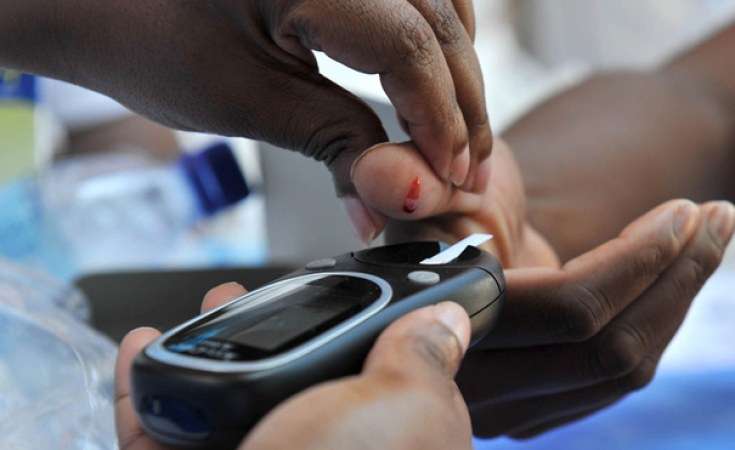
The recently commemorated World Diabetes Day (WDD) 2022 has again presented governments, policymakers and other stakeholders in the Nigerian healthcare sector with compelling reasons to scale up efforts in reducing the burden of diabetes in the country. Established in 1991 by the International Diabetes Federation (IDF) in collaboration with the World Health (WHO), WDD is an annual event marked every 14 November to raise awareness about the escalating health threat posed by diabetes.
With the theme of this year’s edition being “Access to Diabetes Education”, there is need for deliberate and strategic actions towards preventing the escalation of the silent-killer, through knowledge sharing and information dissemination by stakeholders. This has become even more imperative, as the IDF has disclosed that three in four adults in low- and middle-income countries are living with diabetes. Worse still, one in two adults living with the condition is undiagnosed, while the condition accounts for 6.7 million deaths worldwide.
Even more disturbing is that children are not spared from the onslaught of diabetes. Globally, an estimated 1.2 million children and adolescents (0-19 years) are living with Type 1 diabetes, while one in six live births is affected by diabetes during pregnancy.
The situation in Nigeria is particularly worrisome. While joining in this year’s WDD commemoration, the Endocrinology and Metabolism Society of Nigeria (EMSON) declared that over 10 million Nigerians are living with the disease, adding that the number is expected to double by 2030, if nothing is done urgently. President of the Society and Consultant Endocrinologist/Physician at Lagos University Teaching Hospital (LUTH), Idi-Araba, Prof. Olufemi Fasanmade, affirmed that there is an escalation in the rate of diabetes mellitus in Nigeria, warning that the condition kills more than “COVID-19, tuberculosis, HIV/AIDS and cancer put together”.
According to Fasanmade: “In the 1960s to 1970s, diabetes was found in only 0.5-1 per cent of adults in Nigeria. In the 1980s to1990s, the figures rose to 1.4-2.2 per cent of adults. Currently, there is about 5.7 per cent of adults affected with diabetes and 10 to 15 per cent with pre-diabetes. In urban towns and cities in Nigeria, one in 10 adults has diabetes and we have just 90 to 100 million adults in Nigeria.”
Interestingly, most of the factors fuelling this surge in diabetes cases in the country are manmade and therefore preventable. Experts have identified unhealthy lifestyle and diet, as well as smoking and drinking as the culprits. This justifies the call for more public enlightenment on the disease – especially its causes, symptoms, preventive measures and lifestyle choices that can mitigate its destructive consequences on the human health. This is particularly necessary, considering the level of ignorance pervading many low and middle income countries where charlatans, especially traditional medicine practitioners, continue to sell all sorts of unverified products purporting to cure or manage diabetes.
Again, with diabetes being a major cause of blindness, kidney failure, heart attacks, stroke and lower limb amputation, the dearth of endocrinologists in the country calls for serious concern. According to EMSON, there are just about 150 practising endocrinologists in Nigeria, which is appalling for a population of over 200 million people. Additionally, the global economic recession, resulting in the highest inflation rate in the country, is a major challenge for diabetics to meet their regular medication needs. The rising costs of test strips and drugs are increasingly becoming unaffordable to many.
In line with the clarion call by the IDF and WHO for better access to diabetes education, we urge government at all levels, as well as other stakeholders in healthcare, to intensify diabetes advocacy efforts, especially in the grassroots. Nigerians must be promptly and adequately enlightened on the causes of diabetes and the need for preventative lifestyle modifications. And for those already living with the condition, government can lessen their burden by subsidising their daily medical needs. Other stakeholders and charity organisations also can see this as an avenue to support the less-privileged.
Additionally, since diabetes is not a death sentence, it is imperative for government to strategise on closing the gap in the shortage of endocrinologists in the country. We believe that better remuneration and an improved working environment will not only stop the ongoing massive brain drain in the health sector but also attract more professionals.
Most importantly, to win the war against diabetes, prevention is better than cure. Therefore, individuals must be ready to play their roles in ensuring that they avoid the risk factors, especially wrong lifestyle choices.













